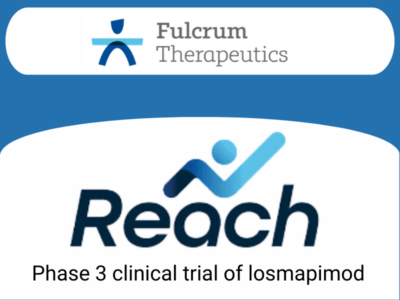This invaluable data is coming to the FSHD Society
by Lucienne Ronco, PhD, FSHD Society
 When a clinical trial fails, what happens to the data? It may include hundreds of thousands of measurements—blood chemistry, images, performances on physical tests, answers to questionnaires—collected from hundreds of participants over several years, at a cost of many millions of dollars. It harbors invaluable information about disease processes and the drug’s activity. And yet biopharmaceutical companies typically do not share this source data once a trial is completed—a huge loss to the medical research community and to patients.
When a clinical trial fails, what happens to the data? It may include hundreds of thousands of measurements—blood chemistry, images, performances on physical tests, answers to questionnaires—collected from hundreds of participants over several years, at a cost of many millions of dollars. It harbors invaluable information about disease processes and the drug’s activity. And yet biopharmaceutical companies typically do not share this source data once a trial is completed—a huge loss to the medical research community and to patients.
Not so with Fulcrum Therapeutics. The company discontinued its FSHD program in September 2024 after its Phase 3 clinical trial did not show a significant difference in the primary functional outcomes between patients on the drug, losmapimod, and those on placebo. Nonetheless, Fulcrum decided all the data they collected should be available to benefit FSHD patients. Toward this goal, the company agreed to transfer the data to the FSHD Society. This is a gift of incalculable value, as researchers will be able to analyze it more deeply.
Starting in February, Fulcrum is transferring the data, including biospecimens, to the Society together with partner pharmaceutical companies. The Society is setting up a data capture and analysis system. This system will ensure that the Fulcrum data remains accurate and that academics, clinicians, FSHD families, and biotech and pharmaceutical companies can access it. Fulcrum also intends to give the Society the Phase 2 clinical data that paved the way for the REACH trial.
How will the data be used?
With this gift, critical data sets will become available for analysis to advance our understanding of the progression of FSHD in clinical trials. The data from individuals on placebo will support this.
The data collected after treatment can be evaluated for subtle patterns of change in the entire group and in sub-groups of patients based upon their disease status. Researchers will be able to ask questions for all data including all timepoints for:
- whole-body MRI imaging data;
- muscle strength data;
- Reachable Workspace (RWS) data;
- Patient reported outcome (PRO) data; and
- Patient disease severity and clinical characteristics, and how they changed over time.
From the MRI data, researchers can examine individual muscles for evidence of disease progression over time. The Fulcrum analysis was carried out on groups of muscles based on their disease status rather than on individual muscles.
The MRI and muscle strength data may teach us which specific muscles become more diseased during a trial and will allow future clinical trials to focus on those informative muscles.
The RWS data will provide additional data to consider how this measurement method can be successfully used in FSHD.
PRO data is very valuable and ensures that clinical trials capture the patient voice in the clinical setting.
We look forward to working with the research community to interrogate this data and to add this wealth of data to our ongoing FSHD knowledge. We are deeply grateful to Fulcrum for this generous gift.


I would recommend that you check the informed consent form you signed—it should state whether you can request your treatment assignment and results.
Also, that you reach out to the study contact person (often listed in the consent form) to formally request your data.
In US, the 21st Century Cures Act (2016) encourages researchers to return clinically relevant information to participants, but it does not mandate disclosure of all individual results.